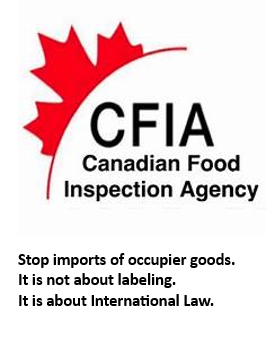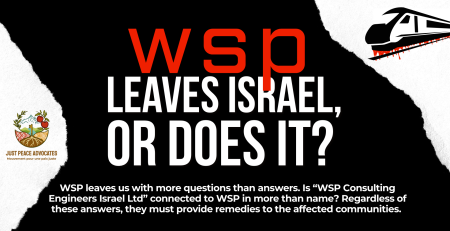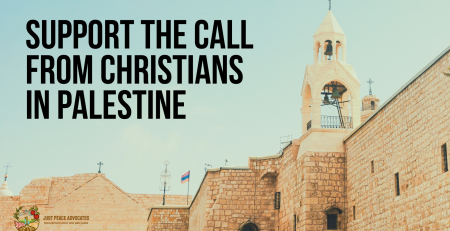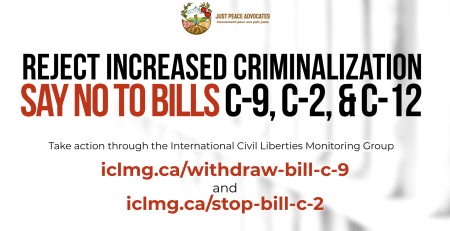The Canadian Food Inspection Agency (CFIA) is accepted submission to their consultation in regard to labeling until October 10, 2023.
Submit to: cfia.labellingconsultation-etiquetage.acia@inspection.gc.ca
Key Points made by Just Peace Advocates
- The consultation while initiated as part of a process to support the Kattenburg vs Canada redetermination, should not be limited to Israeli wine from the West Bank (including East Jerusalem), or the two wines that the complaint included, or even Israeli wine including from occupied Palestine and occupied Syrian Golan. It must be about all products that come under the country-of-origin legislation and regulations for areas occupied by Israel, as well as other occupied areas including Western Sahara and Indian occupied Kashmir. It must be not just about wine, but about all products under country-of-origin.
- The term contested is not viable. The areas under question are occupied as determined by international law (the Fourth Geneva Convention and Rome Statues) and as reflected in Canada’s foreign policy and also domestic law through the Crimes Against Humanity and War Crimes Act.
- It is not feasible that CFIA consider labeling separate to existing international and domestic law, and Canadian foreign policy. While this consultation would not be expected to change foreign policy, it should follow and respect existing foreign policy, as well as international and domestic law.
- Labeling with terminology that would differentiate products that are complicit with violations of the Fourth Geneva Convention (aka war crimes) no matter how accurate the label, would not address Canada’s complicity with those war crimes. Thus, labeling is not the issue, but rather a process to assure Canadians that no product is being imported form occupied areas. This is in line with Amnesty International’s call in 2017, and legislation initiated in other jurisdictions. While CFIA is focused on labeling related to country of origin, steps need to be taken to ensure no products or services are being imported from an occupier that is from the areas they are occupying.
- Products for the indigenous populations of the occupied areas should not face barriers for import, be that through labeling or other overt or covert actions.
The CFIA question
To support the development of guidance on origin labelling of imported food the CFIA is seeking feedback on the following question of stakeholders “For food products from contested territories, would having the geographic region or territory where the food product was produced noted on the label help clarify where the product came from so that the label is not considered ‘false or misleading’ under Canadian labelling regulations?
Specifically, the CFIA has said its consultation is associated with origin claims of imported food products from a ‘contested territory’ in the context of Canada’s domestic food labelling requirements. CFIA for the purpose of this consultation has indicated that ‘contested territory’ means an area outside of Canada that is subject to competing claims of control by third parties.
Just Peace Advocates submission to the CFIA
Ban settlement goods, name indigenous products






